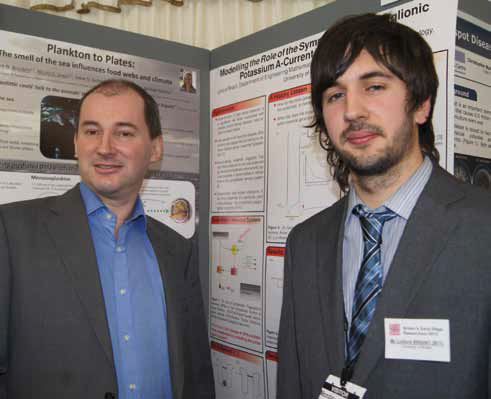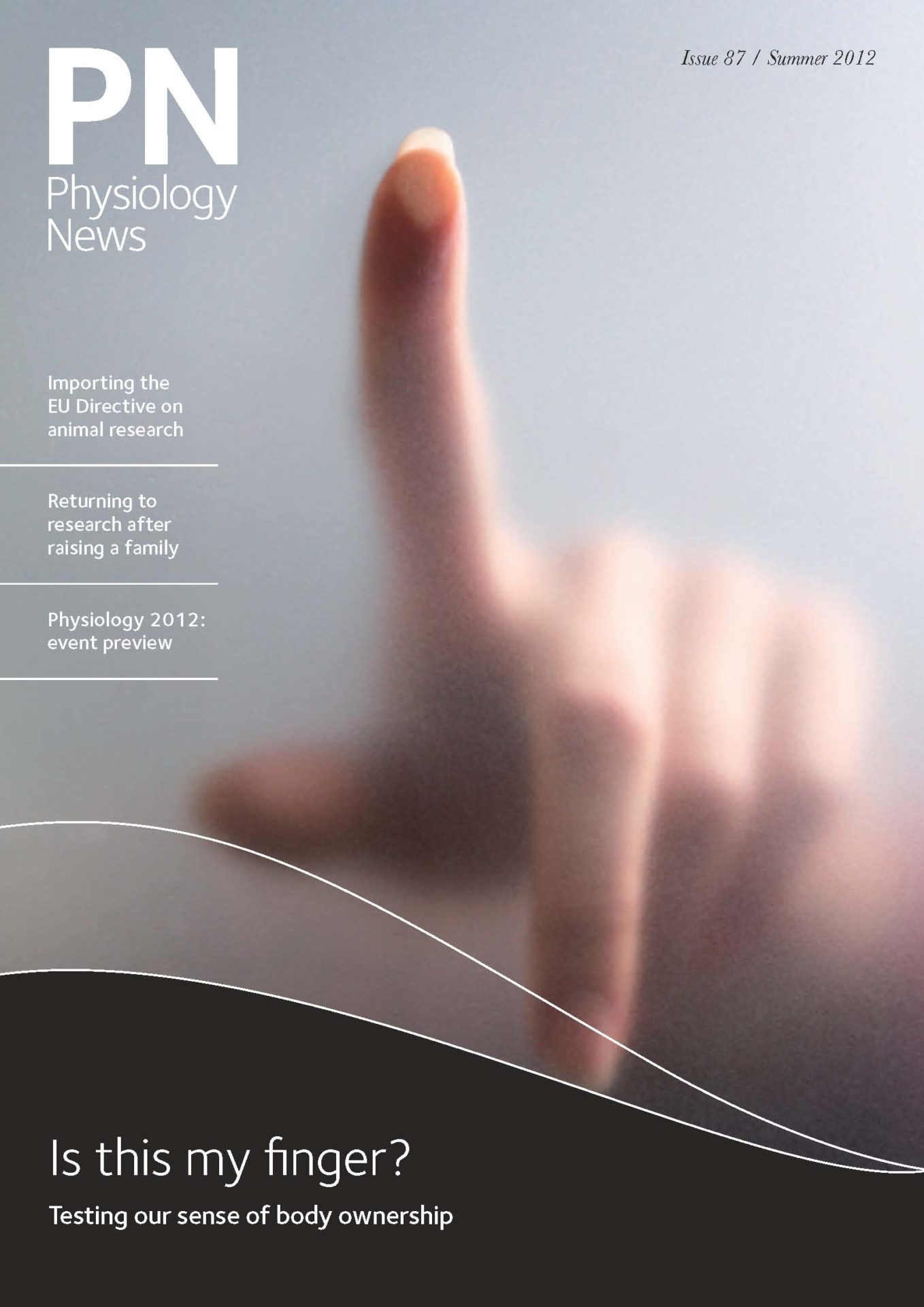
Physiology News Magazine
SET for BRITAIN
News and Views
SET for BRITAIN
News and Views
https://doi.org/10.36866/pn.87.12

Two Members of The Physiological Society were amongst 54 early-career researchers chosen to present their work in the highly competitive biological and biomedical session at the annual SET for BRITAIN poster competition on 12 March 2012. The Society was a major sponsor of this event.
Linford Briant, of Bristol University, and Anastasia Chalkidou, from King’s College London, were selected from over 170 applicants to take part in the prestigious event at the House of Commons. The day was divided into three sessions: biomedical and biological sciences, engineering, and physical sciences. Following a two-hour poster exhibition, with entrants presenting and explaining their posters to an esteemed judging panel, politicians, and representatives from the House of Lords, each session ended with a reception and prize-giving ceremony.
Bronze, Silver and Gold awards for £1000, £2000 and £3000 respectively were presented to the three entrants in each session who were deemed to have best met the criteria, including clarity of both written and oral communication (with the parliamentary audience in mind) and quality of the work being presented. This year’s overall winner, chosen from the three Gold Winners, was Nicolas Love of Manchester University with a poster entitled ‘Hydrogen peroxide as a novel and necessary regulator of appendage regeneration’.
The biological and biomedical session showcased a wide range of research – from carbon emissions to the creation of nanotools. Although neither of our Members were amongst the prize-winners, physiology was well represented.
The event was well attended by members of both the House of Commons and Lords, including the Rt Hon Frances Maude.
Andrew Miller MP, Chair of the Parliamentary and Scientific Committee which helps run the event in collaboration with various learned societies, including The Physiological Society, was also present for most of the day.
“ This year’s SET for BRITAIN was a fascinating event, showcasing some of the best work from the UK’s early-career researchers. It’s a privilege to be involved in bringing the strength of the research in the UK to the attention of my fellow parliamentarians.” -Andrew Miller MP, Chair of the Parliamentary and Scientific Committee
Linford Briant on his experience at SET for BRITAIN
The hammer chimed midday on Big Ben outside the Houses of Parliament. Time to go in. Time to properly don my tie and struggle with the top button of my shirt. It was a gorgeous day in mid-March and I was about to enter the Palace of Westminster in order to present my research to MPs and peers!
After being warmly received in an ornate meeting room, we were lead through the Westminster Hall to the terrace marquee where we set up our posters. In front of me was some very interesting research, both directly related to my field and in other biological and biomedical fields. There was some fascinating physiological research, including work on hypertension and craniofacial development, to name just a few of the subjects represented. By the time I’d done the rounds and talked to a number of people, I realised that my local MP, Dawn Primarolo, was waiting by my poster!
I was pleasantly surprised by how animated and enthusiastic the MPs were towards my research and my background. I had prepared a lay explanation, but it wasn’t good enough – they all wanted more andwere asking all the shrewdquestions I should have askedmy supervisor in the first fewweeks of my project!
The winning posters were, as expected, of an excellent calibre, displaying great research. SET for BRITAIN was an excellent opportunity for me to present my work and experience public engagement at one of the key interfaces between scientific research and the public. I left with a couple of people I’d met to enjoy some food somewhere in Westminster, and am hoping to come again next year.
SET for BRITAIN aims to help politicians understand more about the UK’s science and engineering research base, and increase interaction between parliamentarians and early career researchers.
